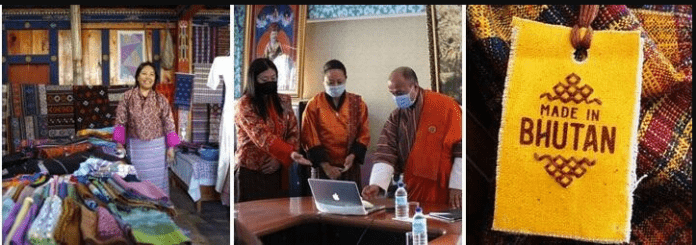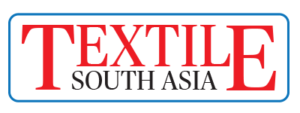A ceremony was held today to mark the conclusion of the EU-Bhutan Trade Support Project. In line with Bhutanese culture and the Royal Government of Bhutan’s `Brand Bhutan Initiative`, the project has been instrumental in strengthening the SME sector by becoming export competitive with a focus on empowering women entrepreneurs and economic and environmental sustainability.
Today, 1,400 artisans, farmers and small and medium sized enterprises (SMEs) in the horticulture and textile handicraft sectors are linked to 11 export markets, contributing to increased incomes of smallholders throughout the country. The project worked with communities across the 20 Dzongkhags of Bhutan.
Since May 2018, the project funded by the European Union (EU) supported export diversification by improving the national trade and investment regulatory framework and increasing exports of horticulture products and textile handicrafts. The efforts have resulted in an increase in incomes along the two value chains leading to economic growth and poverty reduction.
The project was implemented by the International Trade Centre (ITC), a United Nations (UN) agency, in collaboration with the Gross National Happiness Commission (GNHC), the Ministry of Economic Affairs (MoEA), the Ministry of Agriculture and Forests (MoAF) and the Agency for the Promotion of Indigenous Crafts (APIC).
Given the substantial marketing efforts under this project, international buyers showed great interest in Bhutanese products and placed new orders, even during the Covid pandemic, to Bhutanese artisans and producers of honey, chilies, lemongrass oil, cardamom, ginger powder, turmeric powder, herbal tea and mushrooms. 320 new designs of textile handicrafts were developed, and more than 2,000 units exported to Europe, Asia and the US.
The project also helped Bhutan in nurturing a conducive policy environment for the private sector, public-private dialogue and digital trade. Key constraints for SMEs in market access including cross-border procedures were addressed. The project’s support on Generalized System of Preferences Plus, Sanitary and Phytosanitary Standards and Technical Barriers to Trade has contributed to prepare for Bhutan’s LDC graduation in 2023.
Speaking at the ceremony, Hon’ble Minister for Economic Affairs said: “Trade is an essential part of our economy that provides opportunities for employment and economic development. The EU-Bhutan Trade Support project was timely. It assisted the Royal Government of Bhutan in securing new market access for Bhutanese products. The project supported the objectives of the 12thFive Year Plan (FYP)”.
H.E. Mr. Ugo Astuto, EU Ambassador to Bhutan and India said, “SMEs can be engines of sustainable economic growth and inclusive development, besides creating employment. This EU-funded project implemented by ITC in close partnership with the Royal Government of Bhutan, has contributed to unlock the power of small and medium enterprises by supporting the national trade policy, building supply-side capacities for export and identifying economic opportunities abroad. The growing presence of Bhutanese horticulture and handicrafts products in international markets will help in improving the country’s trade surplus and also foster economic recovery post the COVID pandemic.” He added, “The EU and Bhutan enjoy a robust partnership. While we wrap up this project, we will continue to work with Bhutan in diversified areas as well as in supporting its transition from LDC group.”
Mr. Asish Shah, Director, Division of Country Programmes ITC said: “ITC has been a long-term partner of Bhutan, supporting economic diversification, sustainable trade, private sector development, and more on the Gross National Happiness.
I am particularly pleased that several SME representatives are here today to showcase their products and share their experiences on how the project has helped them grow their businesses and export competitiveness.
While the EU-Bhutan Trade Support project is coming to an end, ITC stands ready to work with the Royal Government of Bhutan in support of post-COVID economic recovery, LDC graduation, developing the digital economy, green trade and climate resilient SMEs.”
Bhutanese products from businesses supported by the project were also displayed at the ceremony.
EU-Bhutan relations: The EU has had a very strong presence in Bhutan since 1982. It works closely with Bhutan to reduce poverty, enhance food security and strengthen the democratisation process and good governance, promote trade and sustainable economic growth.
About ITC – The International Trade Centre is the joint agency of the World Trade Organization and the United Nations. ITC assists small and medium-sized enterprises in developing and transition economies to become more competitive in global markets, thereby contributing to sustainable economic development within the frameworks of the Aid-for-Trade agenda and the United Nations’ Sustainable Development Goals.
For more information, visit www.intracen.org.










